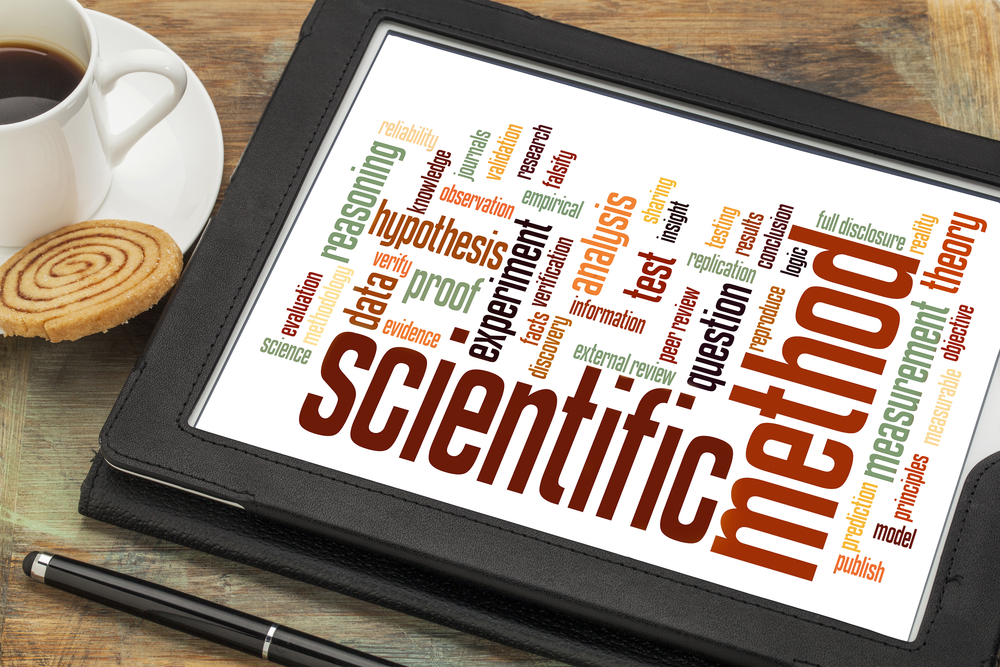Critical thinking development Extra Challenge Worksheets for Ages 6-7
4 filtered results
-
From - To
Boost your child's cognitive skills with our "Critical Thinking Development Extra Challenge Worksheets" designed specifically for ages 6-7. These engaging activities encourage creative problem-solving, logical reasoning, and analytical thinking in young learners. Each worksheet is tailored to challenge kids while making learning fun. Topics range from pattern recognition and puzzles to brain teasers, stimulating thoughtful engagement and a love for learning. Perfect for home or classroom use, these worksheets not only enhance critical thinking skills but also foster independence in completing tasks. Help your child excel in their educational journey with our thoughtfully crafted resources today!
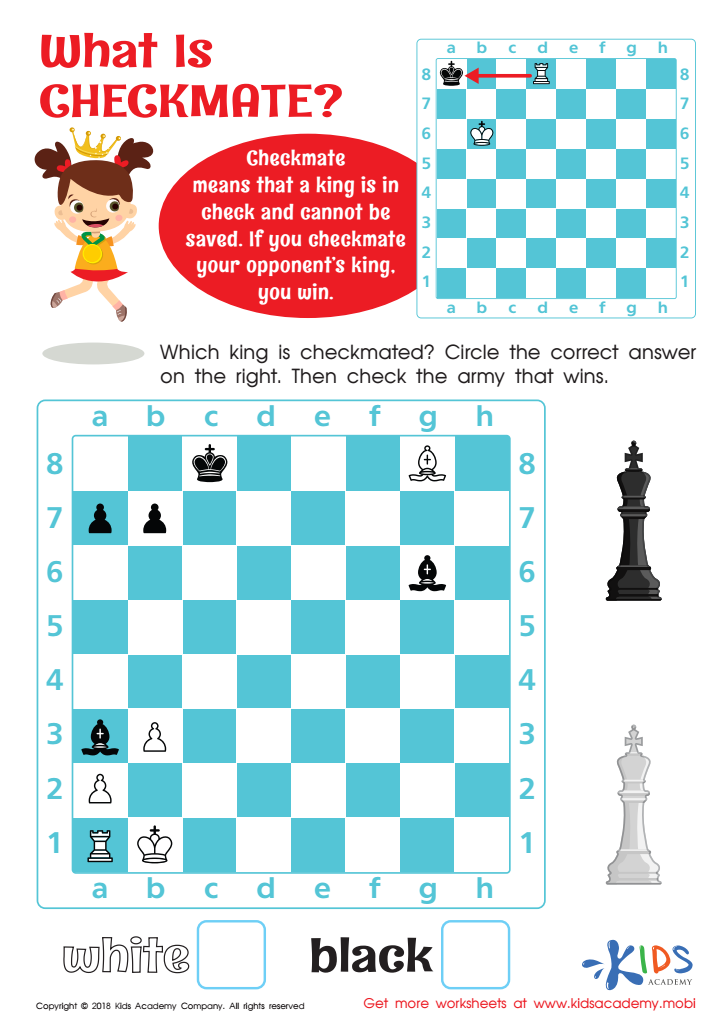

What is Checkmate? Worksheet
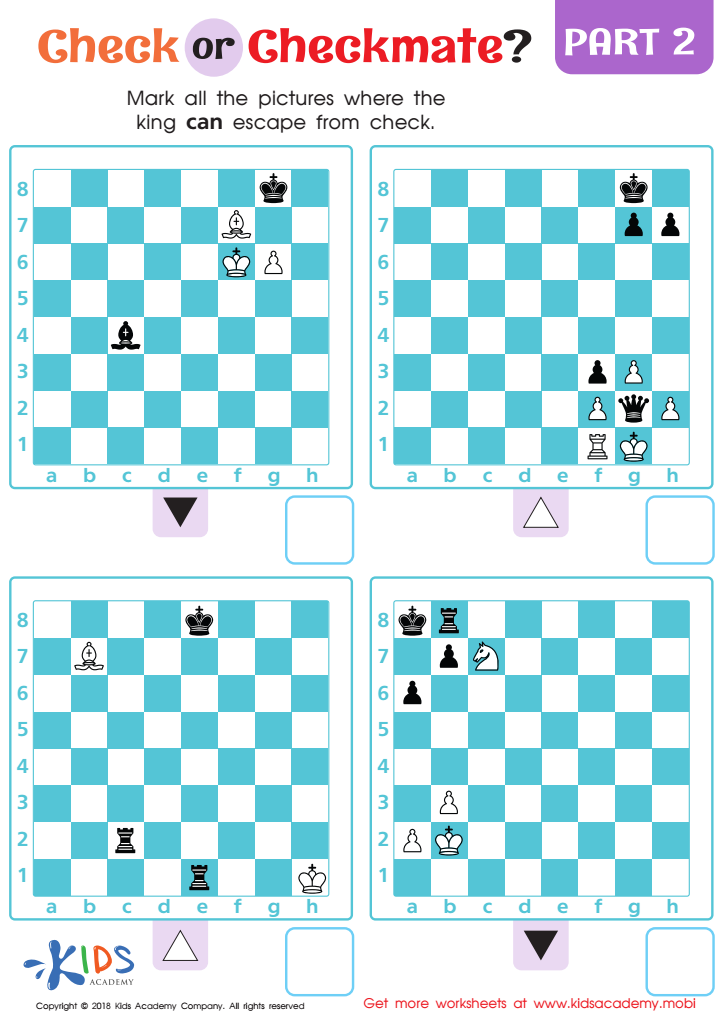

Check or Checkmate: Part 2 Worksheet
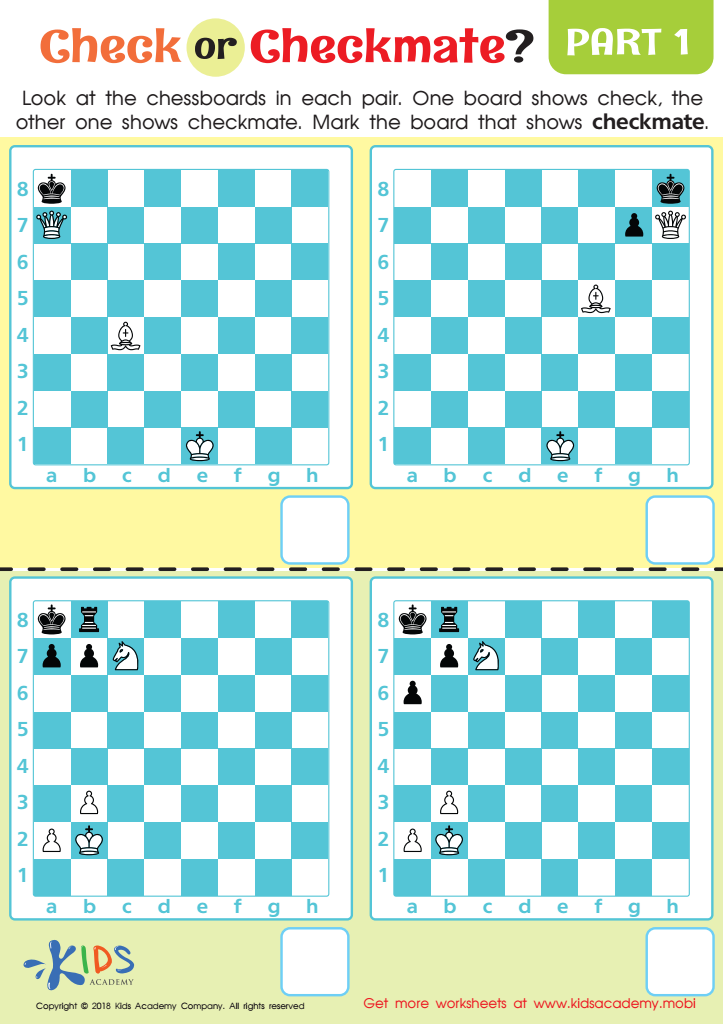

Check or Checkmate: Part 1 Worksheet
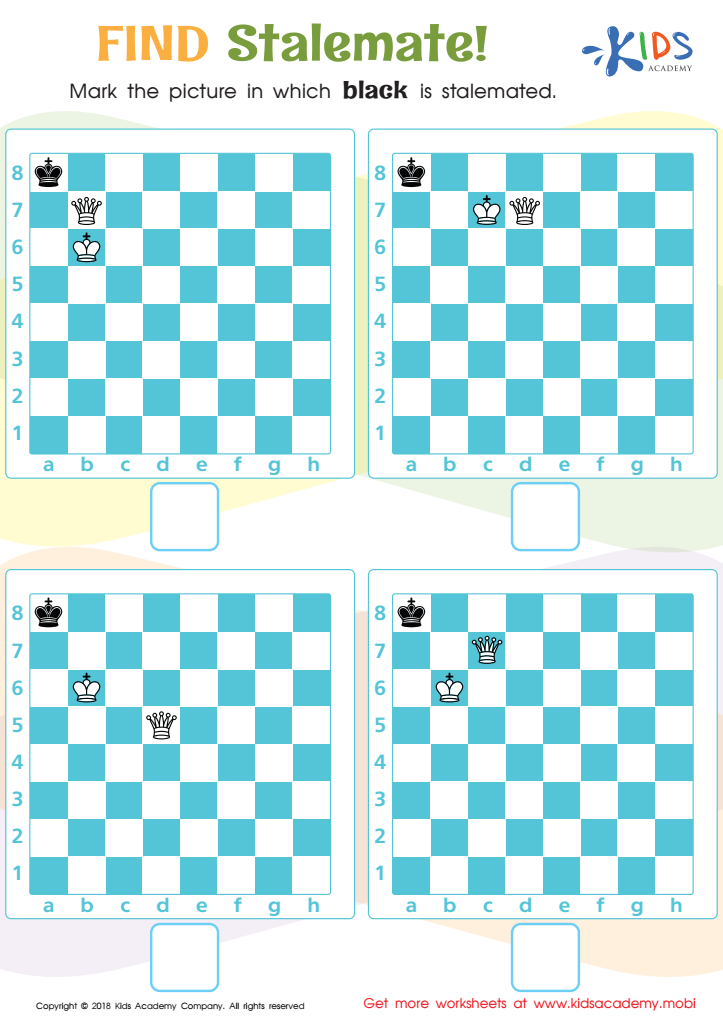

Find Stalemate! Worksheet
Critical thinking development is crucial for children aged 6-7 because it lays the foundation for lifelong learning and adaptability. At this stage, children's cognitive abilities are rapidly evolving, and fostering critical thinking helps them make sense of the world around them. Parents and teachers should care because children who think critically are better equipped to solve problems, make informed decisions, and understand different perspectives.
Critical thinking encourages curiosity and creativity, inspiring children to ask questions and explore new ideas. It promotes independence and self-confidence as they learn to analyze situations rather than simply accepting information at face value. Early development of these skills also enhances academic performance, as critical thinkers tend to excel in subjects that require reasoning, such as math and science.
Moreover, in a rapidly changing society, children who can think critically will be more competent in facing challenges, whether in academics or everyday life. Encouraging this skill at a young age prepares children for future educational opportunities and equips them with the ability to navigate complexities in a mature manner. In essence, nurturing critical thinking is vital for preparing children for both present and future successes.

 Assign to My Students
Assign to My Students





